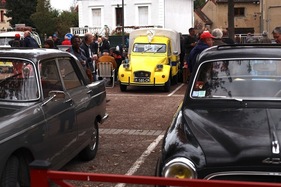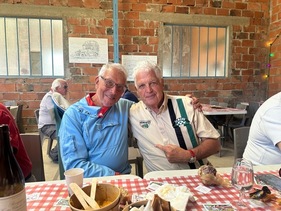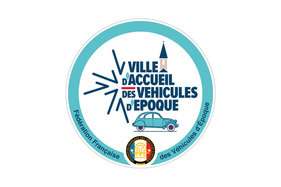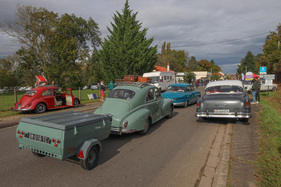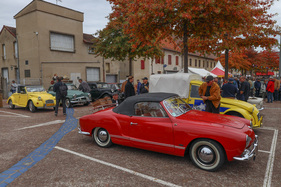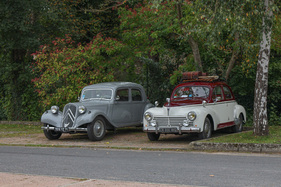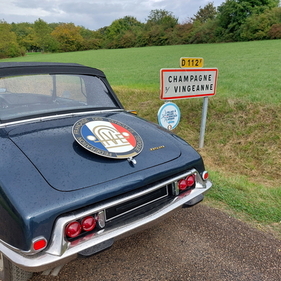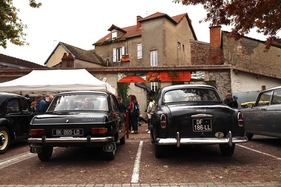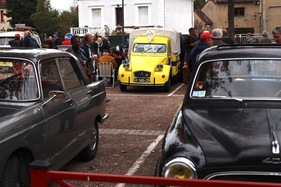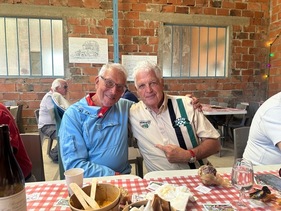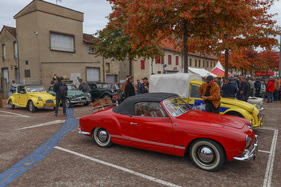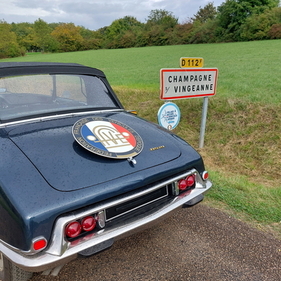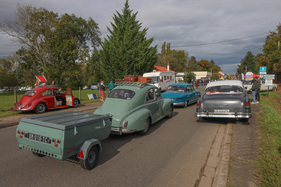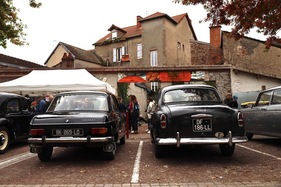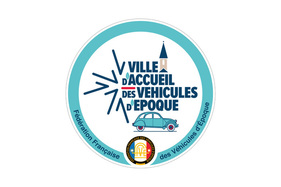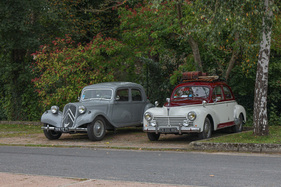Driving bans and restrictions; in Paris, for example, it is not possible to drive a classic car in the city during the day on weekdays. France got serious in 2022 and now has around 25 areas designated as Zone a Faible Emissions ZFE. A Crit'Air vignette is required to drive in these areas; these are available in different color codes and correspond to Euro standards 1 to 6. Vehicles that do not fall under one of these standards do not qualify for such a vignette and are accordingly excluded or temporarily banned from driving in these areas in accordance with local regulations. The extent to which these requirements are monitored and fined is beyond our knowledge. As recently as 2017, however, a flic in the streets of Paris told the author that he would be more than happy if he only had to worry about such trivialities and fining old cars that were on the road in Paris at the wrong time of day. However, a lot of water has flowed down the Seine in the meantime...
Yves Bergeret says that a counter-measure has really forced itself upon them. We first met the delegate of the French classic car umbrella organization, former president of the Beaune classic car club "Automobiles d'Origine et de Collection AOC Beaune" and host and initiator of the historic garage on Route Nationale 6 in Rochepot, the Station du Bel-Air, at his home in Beaune.

Sitting in his green courtyard, with a view of his Citroën DS Cabriolet d'Usine, the former lawyer explains to us the idea of gaining a network of villages and towns that officially offer themselves as destinations for the historic vehicle and also declare themselves as such.
According to Yves Bergeret, it was important to him to offer help to the clubs and associations that look after the historical heritage of road transport. He was also keen to provide some support following the impact of the coronavirus pandemic, which has broken the necks of many small businesses in France without generous cover, or at least brought them to the brink of ruin.
One observation, for example, was that friends of the historic vehicle generally like to have a good time. In other words, they like to stop for a bite to eat and enjoy the specialties and products of the region. You might think that it is not difficult to find these in France, but apparently it is not always easy to connect producers and potential buyers, even in the Hexagon.
Furthermore, it is the big cities, especially Paris, that have really sparked the debate about how to deal with the legacy of road traffic by banning older cars. And even where the car first proved that it could play a sustainable and valuable role in the life of society, where automobile traffic was first invented, there are enough forces that would like to wish it to the land of pepper.
Yves Bergeret was clear that he had to introduce a countermeasure to this development.
"We wanted to win over towns and villages that are committed to the historic vehicle and appreciate its potential. It is a counterpart to driving bans and restrictions. The message here should be: Welcome to us, we can offer you these opportunities, we are happy for you to visit us and we support you in preserving our heritage of mobility history, a part of our country's history."
Clear requirements of the FFVE
The French umbrella organization FFVE, which now awards the Classic Car Friendly Places award, requires a number of criteria to be met; it is more or less a promise made by the city or municipality to classic car enthusiasts in order to qualify as a "Villes et Villages d'Accueil des Véhicules d'Époque". Yves Bergeret explains: "A key question is always who to ask. This sounds relatively banal, but it is a major advantage if someone in a city is responsible for where a group of 50 historic vehicles can park, for example, and who has all the necessary contacts with the city's public order officers and works department. This helps, for example, when it comes to setting up barriers and the like and obtaining permits."
And Bergeret continues: "We attach great importance to this being in the center of the town, on the main square or market square, around the church, in the social, economic and cultural center of a town. Here we demand a kind of guarantee that it is possible to park your vehicle at certain times. It is also important to us that there are appropriate catering facilities."
Cultural aspects and the availability of rudimentary infrastructure for the vehicles are also in demand, as the initiator explains further: "That gives you a reason to drive to the location in the first place. Of course, it is all the better if there are a whole series of places that are set up to be visited by classic car drivers. Then it is also important that there is a workshop on site, which helps just as much as cultural facilities and museums, because in our opinion, combining the heritage of road traffic with the historical and cultural heritage of a place or region makes a lot of sense."
Involved with joy and pride
When a city is awarded the status of Ville d'Acceul des Véhicules d'Epoque, or "City where classic cars are welcome", a small ceremony is held by the local clubs or delegates from the umbrella organization. Part of this is the presentation of a plaque, which can be mounted above the town sign at the entrance to the town, for example. Additional plaques can be purchased at cost price. What initially appears to be simply a nice gesture has already become an event in some places, making it into the regional news channels. A few classics in front of the Hôtel de Ville, the mayor in a historic convertible and the ceremonial handover of the insignia - many a local politician is happy to make time for this.
When the first "Villes et Villages d'Acceul des Véhicules d'Epoque" were launched in June 2024, there were already 120 towns and villages; by the end of 2024, there were 170 destinations and the number continues to grow. The entire map of France is now dotted with little flags of the corresponding municipalities. Many a place in France has recognized the emotional and economic value of historic vehicles and, as Christian Laronze explains, the local converters are delighted to be listed in the register that appears here.
And to be included, the requirements are not even particularly high. An example from France that should set a precedent.













